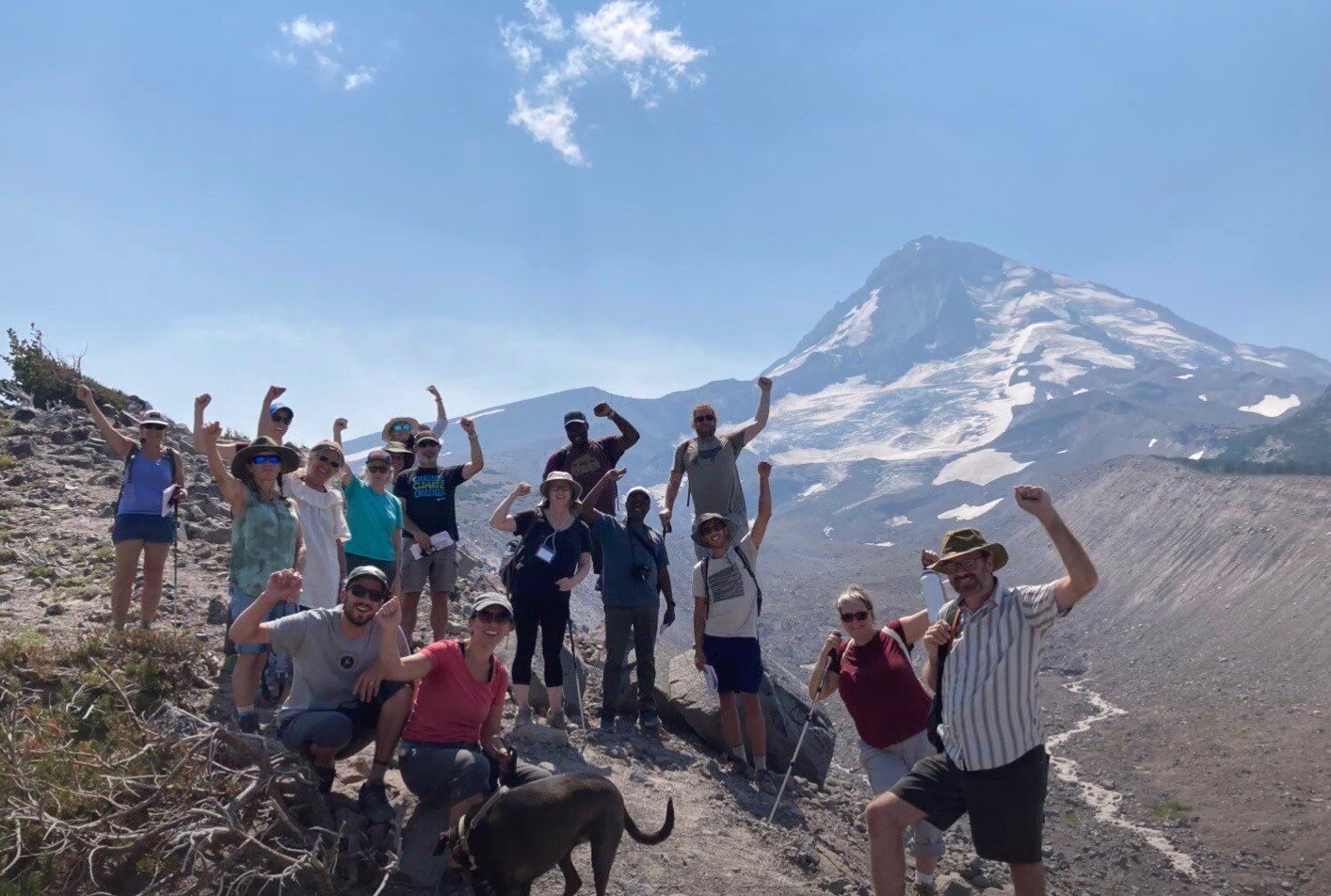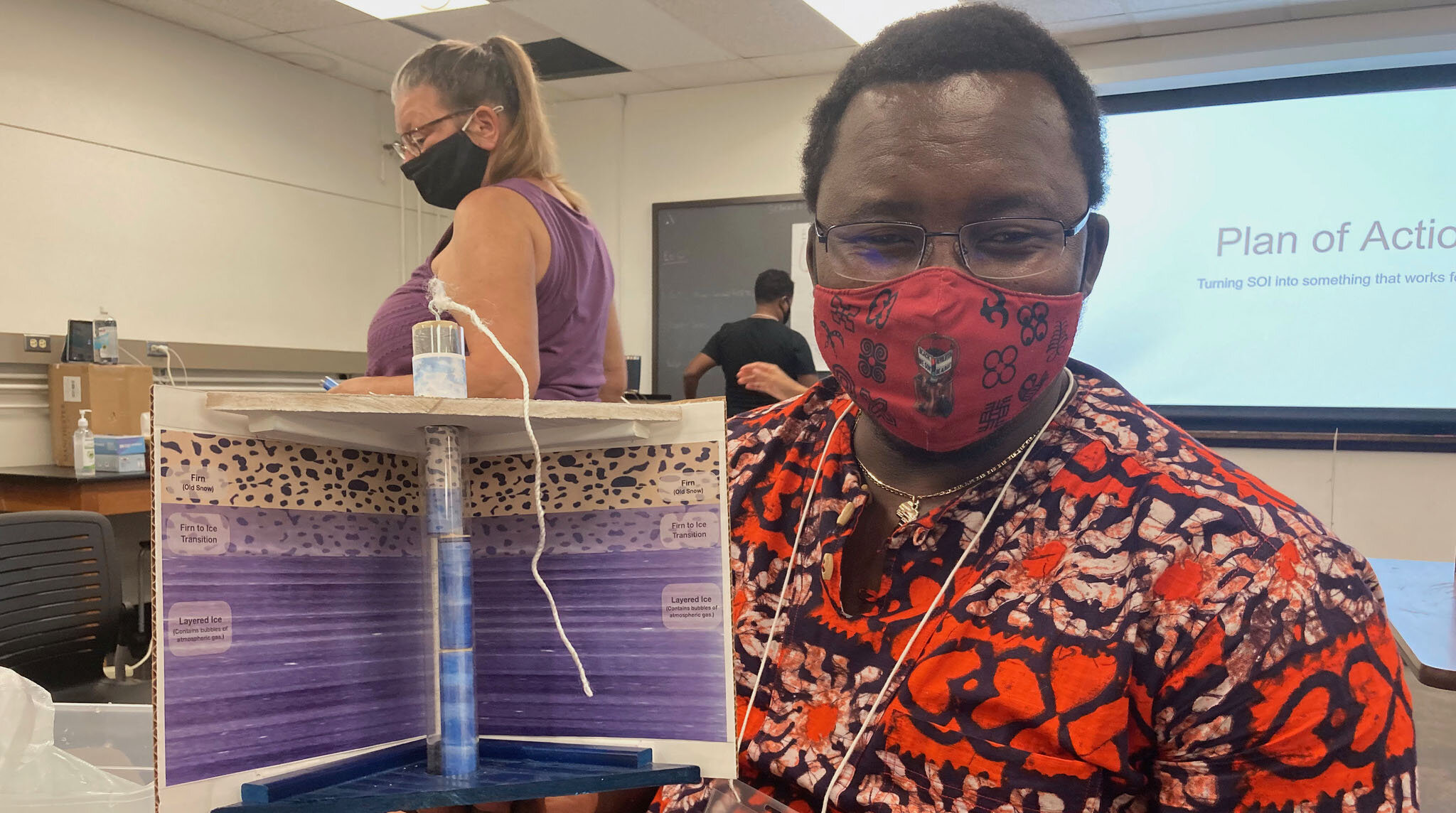School of Ice
School of Ice (SOI) is an advanced professional development program for geoscience faculty at Minority-Serving Institutions. SOI provides participants the opportunity to expand their knowledge of Earth’s past climates through analysis of paleo-climate records in ice cores and to explore resources for transferring ice science to existing and new courses.
School of Ice at Oregon State University capitalizes on the expertise of ice science researchers connected to the COLDEX Science Technology Center. Participants benefit from working closely with these experts as they expand their knowledge of climate change science. They engage in hands-on investigations in the facility’s ice core labs and analyze data from ice cores. Networking with School of Ice scientists and educators builds a lasting learning community and provides opportunities for continued support as they expand paleo-climate study and research for their undergraduate students.
School of Ice Summer 2022
Who?
You are eligible to attend if your institution is a Minority-Serving Institution as defined by the US Department of Education, OR your institution can document a minority enrollment of at least 25%
When?
The next workshop takes place August 6-12, 2022 at COLDEX-Oregon State University, Corvallis, OR.
Applications are due April 14, 2022.
Where?
Oregon State University in Corvallis, OR with field trips to local interests and to the on-campus ice core and sediment core labs.
Why?
Our nation faces a serious challenge in attracting young people to science and its related careers. This is particularly true for members of groups under-represented in STEM and for minority college students majoring in geosciences.
To address these issues, School of Ice has created a rigorous professional development workshop for faculty at minority-serving institutions. The experiential nature of this workshop will build background knowledge of cutting-edge research and empower participants to communicate authentic paleo-climate research practices, ice core data, and results to their students. Data driven labs foster deeper understandings of current ice core research and perceptions of climate change science. The intrinsic interest of the extreme nature of science in polar regions engages and encourages students to consider STEM careers and courses.
How?
Participants will be provided airfare/ground transportation and travel support including lodging, meals and class materials.
Questions?
Contact Louise Huffman (louise.t.huffman@dartmouth.edu)
Director Education and Public Outreach, US Ice Drilling Program, Dartmouth College


